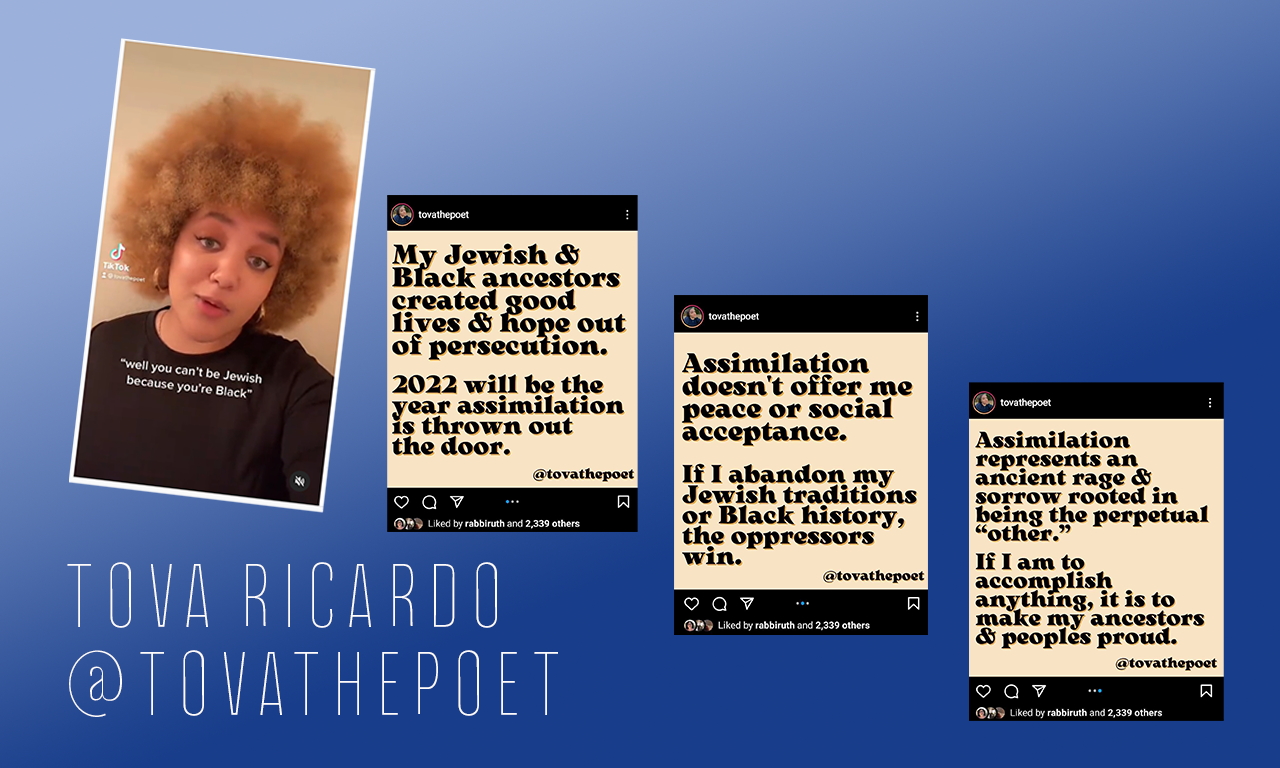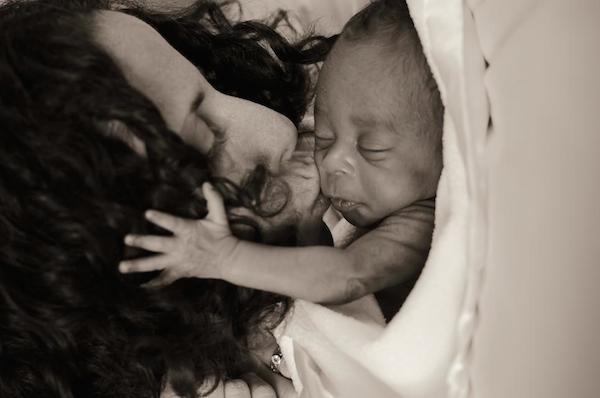During the pandemic, many people have started to build online communities to maintain connections. I sat down with Tova Ricardo, a Digital Associate for the Tel Aviv institute Content Creator program to talk about how impactful online community building has been for discussing antiblackness and antisemitism. The mission of the Tel Aviv Institute is to create a supportive social media and online laboratory that combats antisemitism where it starts, online. The Institute provides resources, data, and proven strategies for those who fight hate in the digital space with an inclusive tone focused on creating a community of advocates and allies for Jews worldwide.
Below are excerpts from our conversation.
Shekhiynah Larks: What inspired you to participate in the Tel Aviv Institute Content Creation Program?
Tova Ricardo: A couple of years ago, I started posting my identity content on a private Instagram account. I talked about topics ranging from antisemitism and anti-blackness to Torah and poetry. I was surprised by how well my content has been received. Before that, I mostly used my poetry to convene conversations about identity. I became an Oakland Youth Poet laureate in 2015. In November of 2021, I decided to make my private account public. Through talking about my identity online, I connected with Hen Mezzig, who told me about Tel Aviv institute. He wanted to assemble a collective of Jewish content creators from many different backgrounds and experiences. I thought it would be fantastic to work with Jewish content creators with intersectional identities. I met many of my online mutuals through the Tel Aviv Institute.
SL: Why did you start posting?
TR: I started talking about my identity in college. I’d post on my Instagram story or in my feed and speak in response to current events related to the Jewish community and Israel, especially regarding anti-blackness. I needed an outlet to express my feelings about how America’s racial reckoning impacted me. Previously I’d done this through my poetry. I thought social media was a great way to use my voice in my community and share and uplift the voices of others.
I was worried for a minute that people would react negatively because of differing attitudes around race, but it has mostly been positive. I have built strong relationships with many thoughtful and motivated people in the Jewish creator world. I have received many direct messages and lots of re-shares from people saying my content is helping them feel seen. I get the occasional hate comment also, but I delete them. I’m not worried about them. I want to focus on my anti-assimilation narrative and encourage Jews to be and feel seen.
SL: Have you received support in creating your content? What do you hope sharing your story will inspire?
TR: Support is essential. I’m not sure I would be able to talk about these topics on my own, especially with talking about intimate issues like my identity. I would not have been able to build my platform without the help of the Tel Aviv institute. The associates and producers on the team help me feel confident that I’m not the end-all-be-all representation of every Black Jewish woman. I hope sharing my story gives people the opportunity to see multiple perspectives. I want my voice to be part of the conversation about history and identity happening in the United States.
View @tovathepoet reels here:
@Tovathepoet_reel_1
@Tovathepoet_reel_2







